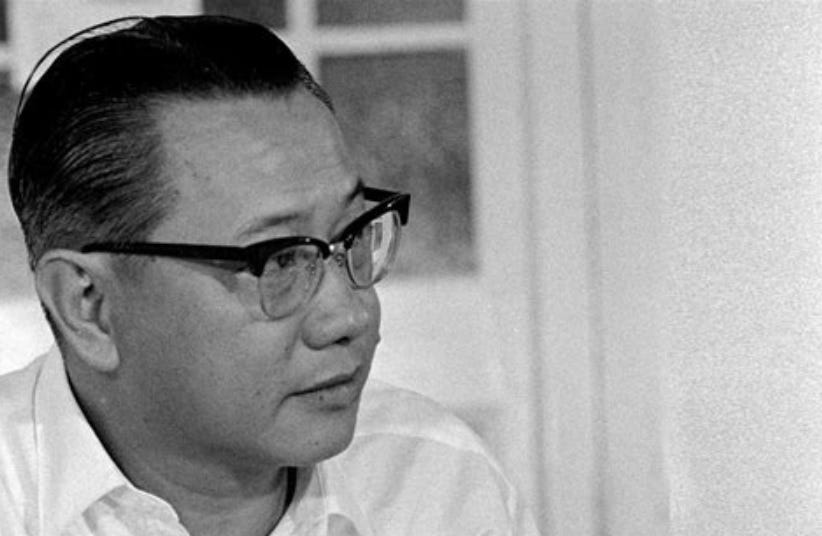'I'm the Committee'
Getting things done, Singapore-style
SDP leader William Clouston repeatedly makes this point: all too often, Britain’s governments fail because they are indifferent about results. Whether that indifference is bred from lethargy, incompetence or despair a the complexity they have inherited, indifference is the easy response. And if the results are disappointing (housing, transport, energy, water, healthcare, security etc etc), well then, price or tax or fine the unsatisfied demand away. Forget expanding supply, concentrate on crushing demand.
It need not be this way.
When Singapore won internal self-government from Britain (in 1959) and independence from Malaysia (in 1965), one of its inheritances was a dreadful housing shortage. Immigration had long outpaced housing construction, and as the population nearly doubled in the 1950s, so Singapore’s shop-houses were both extended and sub-divided into ‘a dark warren of tiny cubicles - airless holes with room in them for little more than a bed. Thus buildings originally designed for one family were made to house 10 families or more. . . ’
Providing decent housing was therefore an urgent task, upon which Lee Kwan Yew’s PAP government would earn or lose its political legitimacy.
So Goh Keng Swee engineered a school-friend and successful businessman Lim Kim Sam to head up the newly-established Housing Development Board. Lim took the job, unsalaried, but with the condition he could manage it with a free hand.
This is what happened next: ‘He then slashed the bureaucratic red tape to achieve rapid results. According to him, the 10-15 committee system which managed the Singapore Improvement Trust (SIT), the predecessor of the HDB, was too cumbersome.
‘He decisively changed the system, asserting: ‘I’m the Committee’. (See ‘Lee’s Lieutenants’ - by Lam Pen Er and Kevin Yl Tan)
The result? Within the first two years, the HDB built 26,168 new homes - approximately the same number built by the SIT in its 32 years.
More achieved in two years than in the previous 32 years of British rule-by-committee government.
We should be far far more demanding of those who would govern us. If an ‘I’m the committee’ approach is what it takes . . .



We could quite easily go out into the countryside on the edge of many of our towns and buy up the land at agricultural prices then award ourselves a planning permission based on building model houses that are the result of an architectural prize with the prize being awarded by the first 200 people in the phonebook rather than fashionable architects
An enlightened dictator always gets stuff done better than the accountability committees of democracy. But for this to work, we’d need to indemnify the one-man committee from the inevitable enquiry/lawsuit/retrospective judgement process that makes such decision-cowards of us all.